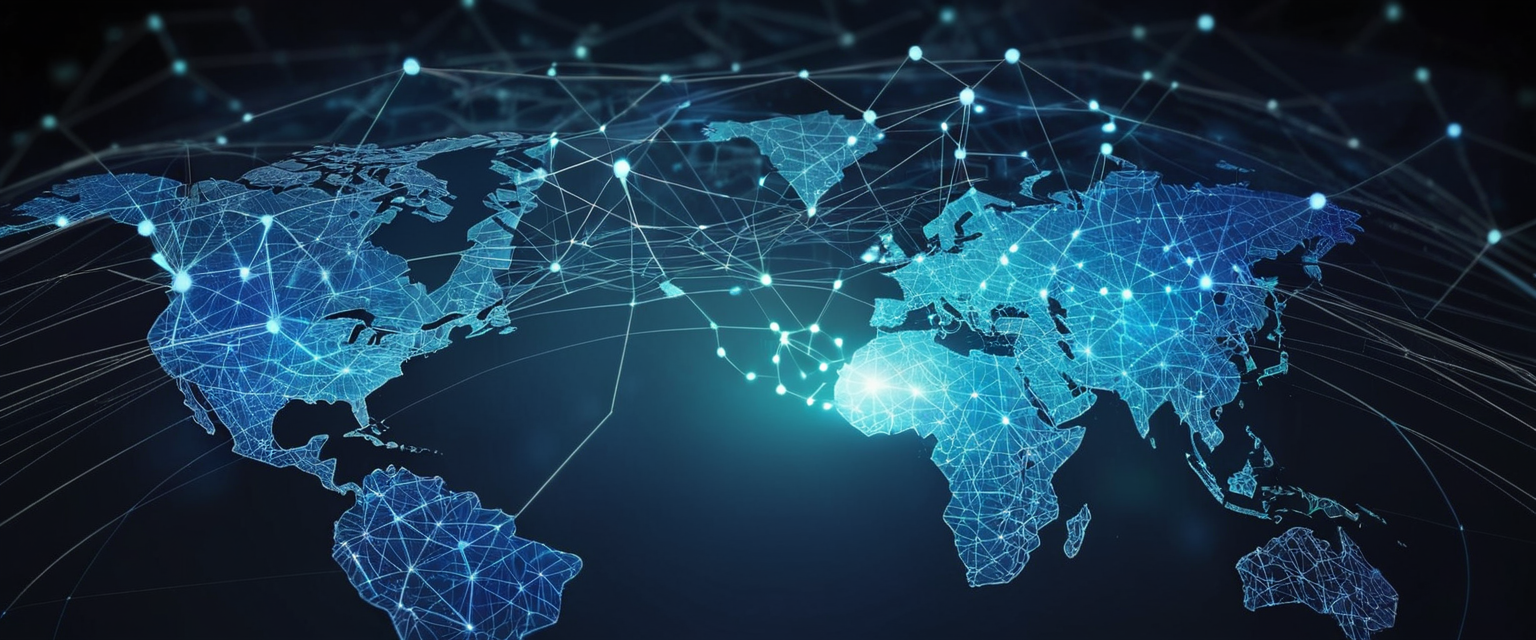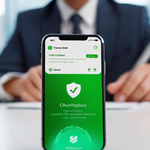
Virtual Private Networks have become increasingly central to conversations about internet freedom, privacy, and governmental control in the digital age, creating a complex legal landscape that varies dramatically across different jurisdictions and regulatory frameworks. While the straightforward answer to whether VPN usage is illegal is that it remains legal in the vast majority of countries worldwide, the reality encompasses significant nuances regarding specific geographic locations, particular use cases, and the distinction between the tool itself and the activities conducted through it. This comprehensive analysis examines the global legal status of VPNs, explores the countries where they are banned or heavily restricted, explains the governmental rationales behind such restrictions, delineates the critical difference between legal and illegal VPN usage, and provides detailed information about enforcement mechanisms, penalties, and recent developments that shape the evolving landscape of VPN regulation in 2025.
The Global Legal Status and Widespread Acceptance of Virtual Private Networks
VPNs remain legal in the vast majority of countries worldwide, including major economic powers and democratic societies across North America, Europe, Australia, and much of Asia. In the United States, VPNs are completely legal for private citizens, and federal law contains no prohibitions against their use by individuals seeking to enhance their online privacy and security. The FBI itself has recommended VPN usage as a legitimate tool for protecting personal privacy and securing online activities. Similarly, VPNs are fully legal in Canada, the United Kingdom, Australia, Japan, and throughout most European Union member states, where they are recognized as important tools for both personal privacy protection and business security operations. In fact, according to comprehensive global data from 2025, VPNs remain fully legal in more than 160 countries worldwide, representing the overwhelming majority of nations and encompassing billions of internet users.
The widespread legal acceptance of VPNs in developed democracies reflects a broader understanding that these tools serve legitimate purposes for privacy protection, data security, and enabling individuals to maintain control over their digital information. In many Western nations, VPNs are used routinely by businesses to establish secure remote access networks, by travelers to protect their data on public WiFi networks, and by privacy-conscious individuals to prevent Internet Service Providers from monitoring and collecting their browsing habits. The European Union’s General Data Protection Regulation (GDPR) framework actually encourages the use of encryption and secure communications, of which VPNs are a recognized component. Furthermore, many organizations recommend VPN usage as a standard practice for maintaining cybersecurity and protecting sensitive personal information during online transactions and financial activities.
However, it is crucial to understand that while VPN technology itself is legal in these jurisdictions, the activities conducted while using a VPN remain subject to all applicable laws and regulations. This fundamental distinction means that using a VPN does not create a legal safe harbor for illegal activities. As security experts and legal analysts consistently note, a VPN is simply a tool, and like any tool, its legality depends upon how it is used rather than its mere existence or deployment.
Countries Where VPNs Are Completely Banned or Prohibited
A small but significant number of countries have implemented complete or near-total bans on VPN usage, reflecting authoritarian governance structures and the desire to maintain complete control over information access and citizen surveillance. These nations represent some of the world’s most restrictive regimes and typically employ comprehensive internet censorship systems that VPNs would otherwise allow citizens to circumvent. Understanding these jurisdictions is essential for anyone considering travel to or communication with people in these regions, as VPN usage in these locations carries serious legal consequences including imprisonment, substantial fines, and other severe penalties.
North Korea stands as perhaps the most extreme example of VPN prohibition, reflecting the regime’s absolute control over all information access and the population’s internet usage. In North Korea, the government provides citizens with access only to Kwangmyong, a state-controlled intranet that blocks virtually all foreign content and independent information sources. VPN usage is strictly prohibited and carries unknown but presumably severe punishments, though the practical impact remains limited given that the vast majority of North Korean citizens lack any internet access whatsoever, making the restriction more symbolic of governmental intent than a widespread enforcement challenge. The government’s monitoring and prohibition of VPNs reflects its fundamental strategy of information control and prevention of any access to information critical of the regime or portraying reality inconsistent with official propaganda.
Iraq implemented a comprehensive VPN ban in 2014, officially citing the need to prevent terrorism but widely understood as an effort to suppress protests and civil unrest during periods of significant political upheaval. The Iraqi government’s stated rationale of preventing extremist communications masks a broader desire to control what information citizens can access and what communications they can conduct outside government surveillance. Violating Iraq’s VPN prohibition can result in up to one year of imprisonment, representing one of the most severe penalties for personal VPN use globally. Despite these strict prohibitions, enforcement appears inconsistent given Iraq’s limited technical infrastructure for comprehensive internet monitoring, though individuals discovered using VPNs face serious legal jeopardy.
Belarus banned VPNs in 2015, extending the prohibition to encompass all anonymizing technologies including the Tor network and private messenger applications like Signal and Telegram. The irony of Belarus’s approach lies in the fact that the Belarusian constitution explicitly prohibits censorship, yet the government systematically employs extreme measures to control internet access and suppress dissent. During periods of political unrest and public protests, the Belarusian government has resorted to complete internet shutdowns as a mechanism for preventing citizen organization and information sharing. Anyone caught using a VPN in Belarus faces significant but unspecified fines, and while some Reddit users have reported certain major VPN providers functioning within the country, the legal prohibition remains in force and carries real enforcement risks.
Turkmenistan banned VPNs in 2019 as part of a broader effort to prevent citizens from accessing Western social media platforms and content deemed threatening to state control. The government’s enforcement approach reached remarkable extremes when authorities reportedly required citizens to swear on the Quran that they would not use VPNs, reflecting both the severity of the prohibition and the integration of religious and governmental authority in enforcement efforts. Given that Turkmenistan has an extremely restrictive internet environment with only approximately 2 million of 6.3 million citizens possessing any internet access, and with citizens required to apply for and be thoroughly vetted before receiving internet access authorization, VPN restrictions represent part of a comprehensive governmental control system. Violators face unspecified fines and potentially severe repercussions.
Myanmar represents the most recent jurisdiction to implement strict VPN prohibitions, with a new security law introduced in January 2022 and reinforced through new cybersecurity laws in 2025. The military government that seized power through a violent coup in February 2021 has implemented severe internet restrictions as part of broader crackdowns on human rights and freedom of expression. Myanmar’s approach to VPN enforcement has included reported incidents of authorities stopping citizens on the street to physically examine their phones for evidence of VPN installation. As of January 2025, unauthorized VPN installation in Myanmar can result in six months imprisonment or fines up to $4,750, with some reports suggesting even more severe penalties. The security law enables the government to conduct equipment seizures and has resulted in documented arrests and fines for VPN possession.
Countries With Severe VPN Restrictions and Government-Only Approval Systems
Beyond complete bans, numerous countries implement sophisticated systems of VPN regulation that effectively restrict access while maintaining the technical claim that VPNs are not entirely illegal. These jurisdictions typically allow only government-approved VPNs that incorporate surveillance capabilities and data-sharing protocols with authorities, making the distinction between nominally legal but practically unavailable largely semantic.
China maintains one of the world’s most sophisticated internet censorship and monitoring systems through the “Great Firewall,” which blocks access to numerous foreign websites including Google, Facebook, Twitter, YouTube, and countless news sources and information resources. While VPNs are not technically illegal per se in China, the government has implemented strict regulations requiring that only state-licensed VPN providers be used, effectively prohibiting all independent, privacy-focused VPNs. Unauthorized VPN usage can result in fines and, in extreme cases, arbitrary detention of up to five years, though individual prosecutions appear less common than systematic blocking of VPN services. Despite these restrictions, estimates suggest that between 50 and 70 million Chinese users continue to employ obfuscated VPN protocols and other circumvention technologies to bypass governmental restrictions and access foreign media and uncensored information. The Chinese government has intensified surveillance efforts, with reports indicating plans to use artificial intelligence technology to identify millions of high-risk individuals using prohibited tools including VPNs and Telegram, the latter of which has been banned for a decade.
Russia permits VPNs only if they comply with government regulations, including blocking access to certain websites that Russian authorities have deemed unacceptable. Russian law requires that VPN providers comply with state content-blocking lists and maintain the capability to cooperate with government surveillance and data requests. As of 2024, Russia has increased enforcement significantly, with new laws imposing higher fines and targeting removal of approximately 100 VPN providers from app stores for non-compliance with governmental regulations. By October 2024, authorities had blocked at least 197 VPN services in Russia, and in March 2024, Russia banned dissemination of information about censorship circumvention tools, which severely restricted effective public discussion about VPN usage and alternatives. Law enforcement officials have not directly criminalized personal VPN use, but the combination of service blocking, information suppression, and intense monitoring creates a hostile environment for VPN deployment. The Russian authorities employ sophisticated technological tools including deep packet inspection and targeted blocking of VPN protocols such as Shadowsocks, AmneziaWG, and OpenVPN, with enforcement varying by region, ISP, and internet connection type.
Iran has officially outlawed unauthorized VPN use through directives from the Supreme Council of Cyberspace that received explicit endorsement from Supreme Leader Ayatollah Ali Khamenei. Under the new regulation, VPN usage is banned unless explicitly authorized by Iranian authorities, which in practice means only government-approved VPNs are legal. Despite this official prohibition, surveys indicate that over 80 percent of Iranian internet users rely on VPNs to bypass extensive governmental censorship and access blocked social media platforms including Facebook, Twitter, Instagram, Snapchat, Reddit, WhatsApp, and numerous streaming services like HBO, YouTube, and Netflix. Using an unauthorized VPN can result in imprisonment for up to one year, and the government’s decree has prompted significant international criticism regarding digital repression and human rights violations. Notably, reports have surfaced suggesting that elements within the Iranian government or its affiliated entities have profited from the VPN trade, raising questions about the government’s true motivations for the crackdown.
United Arab Emirates allows VPNs only when government-approved, with regulations imposed in 2012 specifically designed to prevent access to content deemed “offensive” and to prevent Voice over Internet Protocol services like WhatsApp, Skype, and FaceTime from functioning. Paradoxically, the UAE has recorded the highest VPN adoption rate globally, with 65.78 percent adoption from 2020 through the first half of 2025 and 6.11 million VPN app downloads in the first six months of 2025 alone. This disconnect between legal restrictions and actual usage reflects citizens’ desire to access blocked communication tools and international content despite governmental prohibitions. Misuse of VPNs in the UAE, including using them for illegal activities or to access restricted content without government approval, can result in imprisonment and fines ranging from $500,000 to $2 million under Federal Decree Law No. 34 of 2021 on combating rumors and cybercrimes. Corporate VPNs appear to face fewer restrictions than personal VPN usage.
Pakistan presents a unique case where the legal status of VPNs remains ambiguous and subject to changing government policy. The Pakistan Telecommunication Authority issued a directive requiring citizens to register VPN usage by October 31, 2022, with threatened bans on unregistered services that never fully materialized. In 2024 and 2025, Pakistan’s government made numerous attempts to restrict or ban VPNs entirely, though legal intervention and pushback have prevented complete prohibition. Currently, business VPN use requires a license, and the future status of personal VPN usage remains unclear and subject to government shifting positions. The Pakistani government heavily filters internet content and blocks numerous websites including YouTube and Quora, creating a restrictive environment where VPN usage remains risky despite the technical legality question remaining unresolved.
Egypt restricts VPN usage through implementation of legal penalties for accessing blocked content through VPN-enabled circumvention. While not technically illegal per se, using VPNs to access government-blocked websites can result in significant fines or imprisonment. Egypt’s approach focuses on penalizing the use of VPNs for specific illegal activities rather than banning the technology itself, reflecting a somewhat different enforcement model than absolute prohibition.

Governmental Rationales for VPN Restrictions and Bans
Governments worldwide justify VPN restrictions through several overlapping rationales, though independent analysts and human rights organizations typically identify political motivations underlying stated justifications. Understanding these governmental arguments illuminates the broader conflict between information control and digital freedom in the modern era.
Information Control and Censorship represent the primary motivation for VPN restrictions in most restrictive jurisdictions. Governments seeking to maintain control over what information their citizens can access recognize that VPNs undermine their censorship systems by enabling users to bypass national firewalls and access blocked websites, including news outlets, social media platforms, and content critical of governmental policies. By restricting VPNs, governments can more effectively enforce their censorship regimes and maintain monopolistic control over information flow. This motivation appears particularly evident in countries like China, Iran, and Russia, where comprehensive internet censorship systems form a cornerstone of governmental information control strategy.
National Security Concerns frequently serve as the stated justification for VPN bans and restrictions, with governments arguing that VPNs can facilitate terrorism, organized crime, and other serious threats. Governments contend that by encrypting internet traffic and hiding user activity, VPNs make it difficult for law enforcement and security services to monitor potential threats, identify terrorists, and prevent serious crimes. While legitimate national security considerations do exist, independent observers note that governments in restrictive regimes frequently overstate security threats as a pretext for broader information control and surveillance systems.
Surveillance and Control represents perhaps the most fundamental governmental motivation for VPN restrictions. VPNs make it substantially more difficult for governments to monitor and control citizens’ online activities, create obstacles for comprehensive surveillance systems, and prevent governments from effectively tracing activity back to individual users. Authoritarian regimes view this reduction in governmental surveillance capability as fundamentally threatening to their power structures and control mechanisms. By banning or restricting VPNs, governments can maintain more complete visibility into and control over citizen communications and activities.
Preventing Illegal Activities represents another stated governmental rationale, with governments arguing that VPNs facilitate piracy, online gambling, black-market transactions, and accessing prohibited content. Some Middle Eastern countries cite enforcement of bans on gambling and adult content as justification for VPN restrictions. While some individuals do use VPNs for illegal purposes, the claim that VPN restrictions represent proportionate responses to illegal activity appears overstated, particularly given that other jurisdictions manage illegal online activity without comprehensive VPN bans.
Preserving Political Stability constitutes an explicit motivation in certain cases, with authoritarian regimes recognizing that open internet access and VPN availability enable dissent, protest organization, and circulation of anti-governmental information. VPNs facilitate the rapid spread of politically destabilizing ideas, enable protest coordination, and allow activists to communicate securely outside governmental monitoring. During periods of civil unrest, governments in Myanmar, Russia, and other restrictive nations have strategically restricted VPN availability as a mechanism for suppressing protest organization and dissent spreading.
Economic and Competitive Interests also motivate certain VPN restrictions, particularly in developing nations seeking to protect domestic businesses or enforce monopolies on content distribution. By blocking VPNs, governments can prevent users from accessing foreign versions of streaming services at lower prices, protecting local pricing structures and tax regimes. This economic motivation appears particularly evident in certain Middle Eastern jurisdictions and some Asian nations.
The Critical Distinction: VPN Legality versus Legal VPN Usage
One of the most crucial distinctions in the VPN legality discussion lies between the legality of the VPN technology itself and the legality of how that technology is used. This distinction fundamentally reshapes the legal analysis and understanding of VPN usage across virtually all jurisdictions, as using a VPN does not create legal immunity for illegal activities.
In jurisdictions where VPNs are legal, the simple act of using a VPN to encrypt one’s internet connection, hide one’s IP address, or change one’s apparent location remains entirely lawful. However, the activities conducted through that VPN connection remain subject to all applicable laws and regulations regardless of whether a VPN was employed. If an activity is illegal without a VPN, it remains illegal with one, and using a VPN does not shield someone from legal consequences for illegal conduct. This principle applies across multiple categories of potentially illegal activity conducted through VPNs.
Digital piracy and copyright infringement represent perhaps the most common application of this principle, as many individuals attempt to use VPNs to conceal their downloading or sharing of copyrighted material including movies, television shows, music, and software. The Digital Millennium Copyright Act in the United States and similar copyright enforcement mechanisms in other jurisdictions establish that downloading or sharing copyrighted content without authorization constitutes copyright infringement and piracy, whether or not a VPN is used. Individuals caught downloading copyrighted material through torrents or other mechanisms face potential fines ranging from $200 to $150,000 per work infringed, with extreme cases involving imprisonment, and use of a VPN does not alter this legal exposure. While VPNs do make it more technically difficult for copyright holders and law enforcement to trace illegal downloading activity back to specific individuals, they do not eliminate the liability or provide legal protection.
Hacking, fraud, and other cybercrime remain illegal regardless of VPN usage. Using a VPN to obscure one’s location or identity while engaging in unauthorized computer access, identity theft, fraud, or other cybercriminal activity does not create a legal basis for the conduct, and violators remain subject to criminal prosecution. Similarly, cyberbullying, stalking, and harassment conducted through VPNs remain illegal and subject to prosecution.
Illegal transactions and dark web activities including purchasing illegal drugs, stolen data, illegal weapons, and other contraband remain illegal regardless of VPN usage. While VPNs do provide some technical anonymity that might make such transactions technically difficult for law enforcement to trace, they do not legalize the underlying conduct.
Circumventing streaming service restrictions presents an interesting gray area, as using a VPN to access streaming content from geographic regions where the user does not reside typically violates the streaming service’s terms of service but may not constitute a criminal offense in most jurisdictions. Netflix and other streaming platforms maintain geographic restrictions due to licensing agreements that limit their rights to distribute specific content in particular countries. Using a VPN to bypass these restrictions violates the service’s terms of service, and users discovered engaging in this practice may have their accounts suspended or terminated. While such conduct may not constitute a crime in most jurisdictions, it does violate contractual terms and potentially copyright licensing frameworks. Notably, while use of a VPN for Netflix access is not inherently illegal in the United States and most other jurisdictions where VPNs are legal, Netflix actively blocks known VPN providers, and the terms of service explicitly prohibit this usage.
Legitimate and Lawful Uses of Virtual Private Networks
Beyond these prohibited activities, substantial categories of lawful VPN usage exist, reflecting the technology’s legitimate purposes for privacy protection, security enhancement, and enabling access to information in restrictive environments.
General privacy protection and preventing ISP monitoring constitute core legitimate uses of VPNs, as individuals have legitimate interests in maintaining privacy regarding their browsing habits, searches, and online activities. Without a VPN, Internet Service Providers possess the technical capability to monitor all web traffic, collect comprehensive browsing histories, and in some jurisdictions, sell this behavioral data to advertisers and other third parties. Even the FBI recommends VPN usage as a standard privacy protection practice. Using a VPN to prevent ISP surveillance and maintain privacy regarding lawful internet activities remains entirely legal and increasingly recognized as a standard practice.
Protecting data on public WiFi networks represents another core legitimate use of VPNs, as public wireless networks in coffee shops, airports, hotels, and other public locations present significant security vulnerabilities. Hackers can establish man-in-the-middle attacks on unsecured public WiFi networks, eavesdropping on unencrypted traffic and capturing sensitive information including login credentials, financial data, and personal information. By using a VPN on public WiFi networks, individuals encrypt their traffic and prevent such interception attacks, protecting their data and financial security.
Securing sensitive communications and protecting journalists and activists represents a critically important legitimate use of VPNs, particularly for individuals in restrictive countries seeking to expose human rights abuses, corruption, or governmental wrongdoing. Journalists, researchers, activists, and human rights defenders frequently rely on VPNs to communicate securely outside governmental surveillance, protect their sources, and access information necessary for their work. In countries with severe political repression and threats to personal safety, VPNs represent an essential tool for enabling free speech and information sharing while protecting physical safety.
Circumventing censorship in restrictive countries represents perhaps the most ethically compelling legitimate use of VPNs. In jurisdictions implementing severe internet censorship, VPNs enable citizens to access news, information, social media, and other content blocked by their governments, effectively providing access to unrestricted information and global communication platforms. While VPNs are increasingly restricted precisely because of this circumvention capability, the ethical justification for using VPNs to access censored information remains strong, and numerous human rights organizations recognize VPN usage in restrictive countries as a legitimate means of defending freedom of expression and access to information.
Protecting business data and enabling secure remote work constitutes another major legitimate use of VPNs, as corporations deploy VPNs extensively to enable geographically distributed workforces to securely access corporate networks and sensitive data. Enterprise VPNs encrypt data in transit between remote workers and corporate servers, preventing interception and protecting intellectual property, financial data, and other sensitive business information. GDPR compliance and other data protection regulations frequently recommend or require encryption of data in transit, which VPNs accomplish.
Accessing geo-blocked content that users have legitimate rights to access represents a gray-area legitimate use, such as when travelers wish to access their home country’s streaming services or content while abroad. Many individuals subscribe to streaming services in their home country and reasonably expect access to that content while traveling, and using a VPN to maintain access does not clearly constitute illegal conduct in most jurisdictions.

Technical Enforcement Methods and Detection Technologies
Governments and private organizations have developed increasingly sophisticated technological methods for detecting VPN usage and enforcing VPN restrictions, creating an ongoing technological arms race between censorship circumvention techniques and detection technologies.
Deep Packet Inspection (DPI) represents one of the primary governmental technologies for detecting VPN traffic, involving analysis of data packets passing through networks to identify characteristics indicating VPN usage. ISPs implementing DPI systems examine the metadata and structure of network traffic to identify VPN protocol signatures, allowing governments to flag and potentially block VPN connections. However, DPI remains resource-intensive and not foolproof, as VPN providers continue to develop obfuscation techniques that disguise VPN traffic as regular internet traffic, making it substantially more difficult for DPI systems to identify and block VPN connections.
Blocking VPN servers through blacklisting of known VPN server IP addresses and domain names represents another enforcement mechanism, though VPN providers can relatively quickly switch to new IP addresses and domain names, limiting the long-term effectiveness of this approach.
Technological blocks and filtering systems similar to China’s Great Firewall create sophisticated filtering infrastructure that can detect and block unauthorized VPN traffic with remarkable efficiency, though even these systems face challenges from constantly evolving obfuscation techniques.
Forcing cooperation with ISPs to throttle or block VPN traffic represents another enforcement mechanism, though this approach may face opposition from ISPs or encounter technical limitations.
The Torrenting Case Study: VPN Usage and Copyright Infringement
The intersection of VPN usage and copyright infringement through torrenting illustrates the practical application of VPN legality principles and demonstrates the critical distinction between legal VPN usage and illegal activity conducted through VPNs.
Torrenting itself is not inherently illegal, as the BitTorrent protocol simply represents an efficient mechanism for peer-to-peer file sharing that can transmit files of any type. However, torrenting becomes illegal when individuals download or share copyrighted material, including movies, television shows, music, video games, and software, without authorization from copyright holders. The Digital Millennium Copyright Act established a legal framework imposing severe penalties on individuals engaging in copyright infringement through any mechanism, with fines potentially reaching $150,000 per work infringed and imprisonment in extreme cases. Many individuals use VPNs when torrenting copyrighted material to prevent their ISP from monitoring the activity and to obscure their IP address from other torrent participants and copyright enforcement organizations that track illegal downloading.
However, using a VPN does not render the copyright infringement legal or provide protection from legal liability. While VPNs do make it technically more difficult for copyright holders and law enforcement to identify individuals engaging in illegal downloading, they do not eliminate the legal violation or shield users from potential prosecution and penalties. Moreover, torrenting legal, non-copyrighted material with or without a VPN remains entirely lawful, and security experts recommend VPN usage when torrenting specifically because it prevents ISP monitoring of network activity, which can be beneficial when engaging in legitimate torrenting.
Law enforcement and copyright enforcement organizations have developed methods to trace illegal torrenting activity even through VPNs, including by obtaining warrants to compel VPN providers to disclose user information. Additionally, if a VPN provider maintains detailed logs of user activity, law enforcement can potentially access these logs through legal process. This dynamic illustrates why reputable privacy-focused VPN providers maintain strict no-log policies—they have no data to surrender even if compelled by law enforcement.
Recent Developments and 2025 Enforcement Trends
The landscape of VPN regulation has continued to evolve rapidly through 2024 and into 2025, with several governments intensifying enforcement efforts and implementing new restrictions.
Myanmar’s January 2025 Cybersecurity Law introduced one of the newest and most severe VPN prohibitions, establishing penalties of six months imprisonment or fines up to $4,750 for unauthorized VPN installation. The law authorizes equipment seizure and has resulted in documented arrests and fines for VPN possession.
Russia’s Escalating Enforcement has intensified significantly, with increased fines, removal of approximately 100 VPN providers from app stores, and blocking of at least 197 VPN services by October 2024. In March 2024, Russia banned dissemination of information about censorship circumvention tools, severely restricting public discussion of VPN alternatives.
Iran’s Official VPN Prohibition through Supreme Council of Cyberspace directives endorsed by Supreme Leader Khamenei represents a formal escalation of restrictions, though enforcement against individuals appears inconsistent. In May 2025, Iranian authorities introduced “Cyber Freedom Areas” for authorized individuals to access internet without censorship, potentially representing a partial reversal of total prohibition.
China’s AI-Enhanced Surveillance involves plans to use artificial intelligence to identify millions of high-risk individuals using prohibited VPN tools, representing a significant technological escalation in enforcement capability.
Cisco VPN Vulnerabilities Exploitation in 2025 demonstrated the vulnerability of VPN infrastructure itself to sophisticated cyberattacks, with Chinese-linked threat groups exploiting critical VPN security flaws to breach U.S. government networks.

Regional Variations in VPN Regulation and Adoption
Global VPN adoption patterns reflect regional differences in legal status, censorship intensity, and user demand for privacy protection and censorship circumvention.
The Middle East and Arabian Gulf region demonstrates the highest VPN adoption rates globally, with the UAE at 65.78 percent adoption from 2020-2025, followed by Qatar at 55.43 percent, and other Gulf nations showing penetration rates between 28 and 38 percent. This extraordinarily high adoption reflects the combination of governmental restrictions on VoIP services and other communications tools, restrictions on content deemed inappropriate, and strong user demand for accessing blocked communication and entertainment platforms.
Asia-Pacific region demonstrates the fastest VPN growth rates, with Indonesia recording the world’s highest national adoption rate between 55 and 61 percent, and India experiencing significant growth to 43 to 45 percent adoption. These regions combine moderate governmental restrictions with high internet user populations and strong demand for censorship circumvention and privacy protection.
North America leads in absolute VPN downloads due to population size, with the United States recording 63.41 million downloads in 2024, though representing a relatively low per-capita adoption rate of 42 percent compared to Middle Eastern and Asian averages. Canadian and U.S. VPN usage primarily focuses on privacy protection, streaming content access, and secure remote work rather than circumventing governmental censorship.
Europe demonstrates moderate VPN usage, with countries like the Netherlands at 10.4 percent adoption, the United Kingdom at 7.2 percent, and most Western European nations between 6 and 15 percent. European VPN adoption reflects privacy concerns about ISP monitoring and GDPR compliance considerations rather than censorship circumvention.
Africa records the lowest VPN adoption rates globally, with none of the continent’s 21 surveyed nations entering the top 50 adoption rankings, and eight of the ten countries with lowest worldwide adoption rates being African nations. Limited broadband infrastructure, relatively lower internet penetration, and lower consumer awareness represent contributing factors to this pattern.
The Legal Lowdown on VPNs
The global legal landscape regarding Virtual Private Networks demonstrates remarkable complexity, with VPNs remaining fully legal and widely recommended in the majority of countries while facing increasing restrictions and complete prohibition in a small but growing number of jurisdictions characterized by authoritarian governance and comprehensive internet censorship systems. VPNs are legal in more than 160 countries, including major developed democracies and economic powers, while remaining completely banned or subject to severe restrictions in fewer than 20 countries that account for a smaller portion of global population. In the United States and most Western democracies, VPNs not only remain legal but are actively recommended by security experts, privacy advocates, and even government cybersecurity agencies as essential tools for protecting personal data, preventing ISP surveillance, and enabling secure communications.
However, the legality of VPN usage must be understood as distinct from the legality of activities conducted through VPNs, a crucial distinction that fundamentally shapes the practical legal analysis. Using a VPN itself remains legal in permissive jurisdictions, but the activities conducted through that VPN connection remain subject to all applicable laws and regulations without exception. Engaging in copyright infringement, hacking, fraud, or other illegal activities through a VPN does not create legal immunity, and law enforcement agencies have developed increasingly sophisticated methods for identifying and prosecuting such conduct despite the technical privacy that VPNs provide. This principle applies uniformly across all legal jurisdictions—if an activity is illegal without a VPN, it remains illegal with one.
The governmental rationales for VPN restrictions, while sometimes couched in security and crime-prevention language, primarily reflect desires for information control, surveillance capability maintenance, and prevention of political destabilization through suppressed dissent. Jurisdictions that most aggressively restrict VPNs, including China, Russia, Iran, and others, consistently employ comprehensive internet censorship systems and demonstrate authoritarian governance characteristics, suggesting that VPN restrictions serve primarily as tools of political control rather than legitimate security or crime-prevention measures. Notably, VPNs are increasingly restricted precisely in the countries and contexts where they would be most valuable for protecting human rights, enabling freedom of expression, and facilitating access to information—a reality that human rights organizations and digital freedom advocates have highlighted in calls for international protection of VPN access.
For individuals in jurisdictions where VPNs are legal, the technology offers substantial legitimate benefits for privacy protection, security enhancement, and enabling lawful access to geographically restricted content. Users should prioritize selecting reputable VPN providers with strong no-logs policies and independent security audits to ensure genuine protection of their privacy and data. However, users must understand that VPN usage does not provide legal immunity for illegal activities, and activities conducted through VPNs remain subject to prosecution under all applicable laws.
For individuals in restrictive jurisdictions where VPN usage faces limitations or prohibition, the calculation becomes more complex, requiring careful assessment of local legal consequences against the importance of the specific activity or information access sought through VPN usage. Journalists, activists, and others engaged in human rights work in restrictive countries may reasonably determine that the risks of VPN usage warrant acceptance given the importance of their work, while others may determine that personal security and legal safety take priority. International human rights organizations increasingly advocate for protection of VPN access as essential to freedom of expression and protection of human rights defenders.
The evolution of VPN regulation and enforcement continues rapidly through 2025, with several governments implementing new restrictions and enforcement mechanisms while simultaneously seeing increased VPN adoption in their populations, suggesting persistent demand for privacy protection and censorship circumvention despite governmental restrictions. The technological arms race between censorship mechanisms and circumvention technologies appears likely to continue intensifying, with government deployment of sophisticated technologies like deep packet inspection, AI-enhanced surveillance, and comprehensive network monitoring meeting responses from VPN providers developing obfuscation techniques, stealth protocols, and multi-hop routing designed to evade detection. The future trajectory of VPN regulation and enforcement remains uncertain, though the fundamental tension between governmental desires for information control and individual demands for privacy protection appears unlikely to resolve in the near term, ensuring that VPN legality and regulation will remain contested territory at the intersection of technology, politics, and human rights for the foreseeable future.
Protect Your Digital Life with Activate Security
Get 14 powerful security tools in one comprehensive suite. VPN, antivirus, password manager, dark web monitoring, and more.
Get Protected Now





